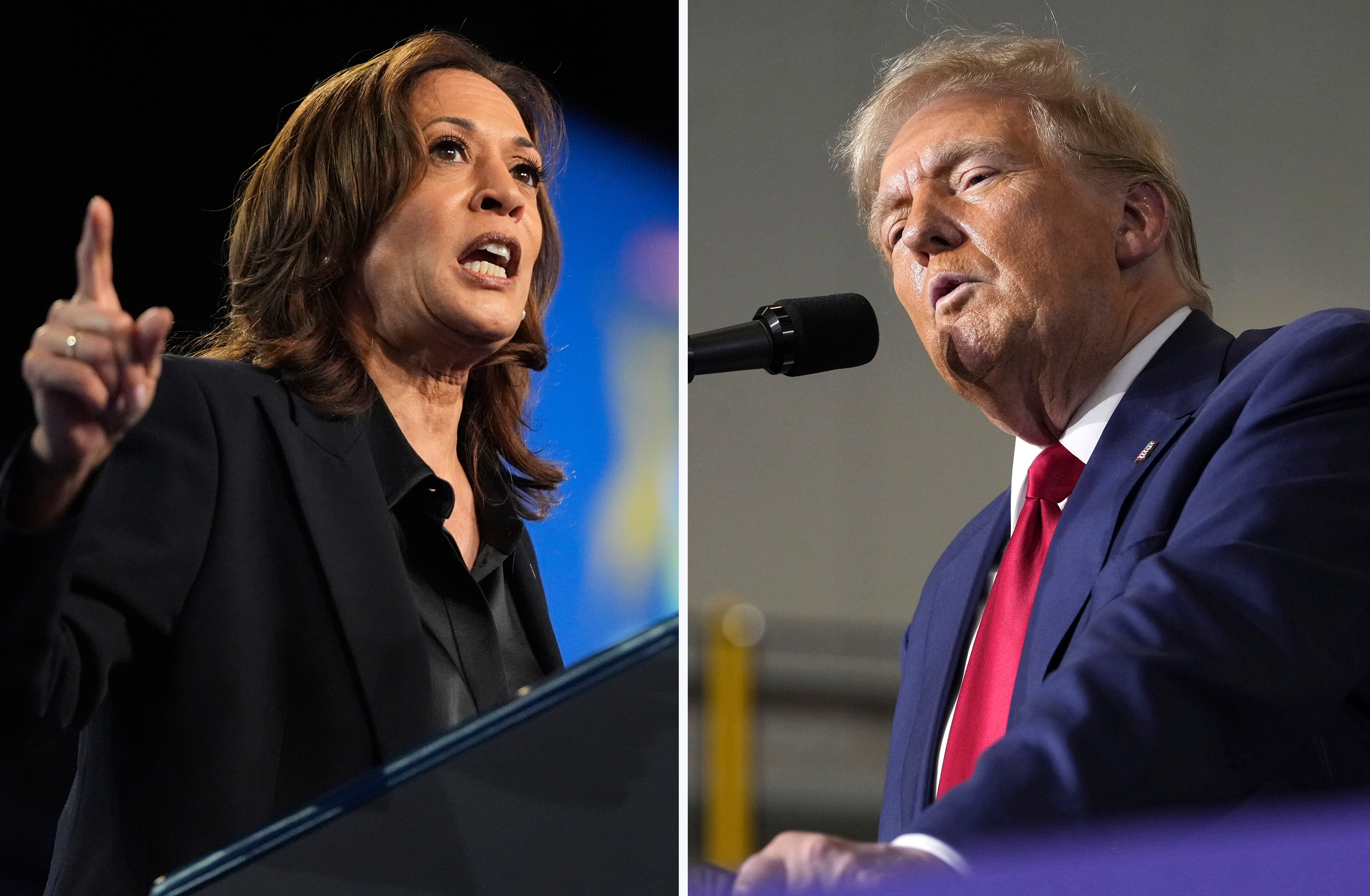New analysis suggests national debt could increase under Harris, but it would surge under Trump
No one is likely to be happy with the projected higher deficits laid out in a new analysis of Kamala Harris’ and Donald Trump’s economic plans

Your support helps us to tell the story
From reproductive rights to climate change to Big Tech, The Independent is on the ground when the story is developing. Whether it's investigating the financials of Elon Musk's pro-Trump PAC or producing our latest documentary, 'The A Word', which shines a light on the American women fighting for reproductive rights, we know how important it is to parse out the facts from the messaging.
At such a critical moment in US history, we need reporters on the ground. Your donation allows us to keep sending journalists to speak to both sides of the story.
The Independent is trusted by Americans across the entire political spectrum. And unlike many other quality news outlets, we choose not to lock Americans out of our reporting and analysis with paywalls. We believe quality journalism should be available to everyone, paid for by those who can afford it.
Your support makes all the difference.No one is likely to be happy with the projected higher deficits laid out in a new analysis of Kamala Harris' and Donald Trump's economic plans.
The analysis released Monday by the nonpartisan Committee for a Responsible Federal Budget suggests a Harris presidency could increase the national debt over 10 years by $3.5 trillion. That's even though the vice president's campaign insists her proposed investments in the middle class and housing would be fully offset by higher taxes on corporations and the wealthy. Her campaign policy guide states that Harris is “committed to fiscal responsibility — making investments that will support our economy, while paying for them and reducing the deficit at the same time.”
The same analysis says former President Trump's ideas could heap another $7.5 trillion onto the debt and possibly as much as $15.2 trillion. That's even though he suggests growth would be so strong under his watch that no one would need to worry about deficits.
The 34-page report released by the fiscal watchdog group puts a spotlight on the issue of government borrowing that will confront the winner of November's election. Total federal debt held by the public now tops $28 billion and is expected to keep climbing as revenues can't keep up with the growing costs of Social Security, Medicare and other programs. The analysis noted that the expense of servicing that debt in dollar terms has “eclipsed the cost of defending our nation or providing health care to elderly Americans.”
Drawing on the candidates' speeches, campaign documents and social media posts, the analysis warns bluntly: “Debt would continue to grow faster than the economy under either candidates’ plans and in most scenarios would grow faster and higher than under current law.”
Neither candidate has meaningfully stressed budget deficit reduction in their pitch to voters. But multiple analyses show a clear difference of Harris being much more fiscally responsible than Trump.
Harvard University professor Jason Furman, who was the top economist in the Obama White House, estimated in an opinion article for The Wall Street Journal that Harris' plans could cut deficits by $1.5 trillion or raise them by $1.5 trillion. Meanwhile, his estimates show that Trump's plans would increase deficits by $5 trillion, though that figure does not include his plans to charge no taxes on overtime pay and scrap the limit on deductions of state and local taxes.
There are other estimates by The Budget Lab at Yale and the Penn Wharton Budget Model that also show Harris would be better at keeping the deficit in check.
The Committee for a Responsible Federal Budget analysis estimates that Harris' policy ideas could add $3.5 trillion to the national debt through 2035. That conclusion depends on its treatment of how much various programs could cost.
It forecasts that Harris would implement $4.6 trillion in tax reductions, including extensions of some of the expiring 2017 tax cuts that Trump signed into law and tax breaks for parents and no taxes on tipped income for hospitality workers. Roughly $4 trillion in higher taxes on corporations and the wealthy would be insufficient to cover the total cost of her agenda and the additional interest on the debt that it could generate.
Still, the analysis notes that its numbers depend on various interpretations of what Harris has said. It's possible that Harris' agenda would add nothing to baseline deficits, but the report also said it might plausibly add as much as $8.1 trillion in debt in what appears to be a worse-case scenario.
By contrast, Trump's ideas would likely add another $7.5 trillion to the debt. His $2.7 trillion in tariff revenues would be unable to cover $9.2 trillion in tax cuts and additional expenditures such as $350 billion to secure the border and deport unauthorized immigrants.
But the analysis includes other possibilities that show far higher deficits under Trump. If his tariffs raised less money and there were higher costs for his mass deportations and tax breaks, the national debt could jump by $15.2 trillion.
On the other hand, if the tariffs raised $4.3 trillion and there were no costs tied to deportations, Trump's plans could only increase the debt by $1.5 trillion over 10 years.